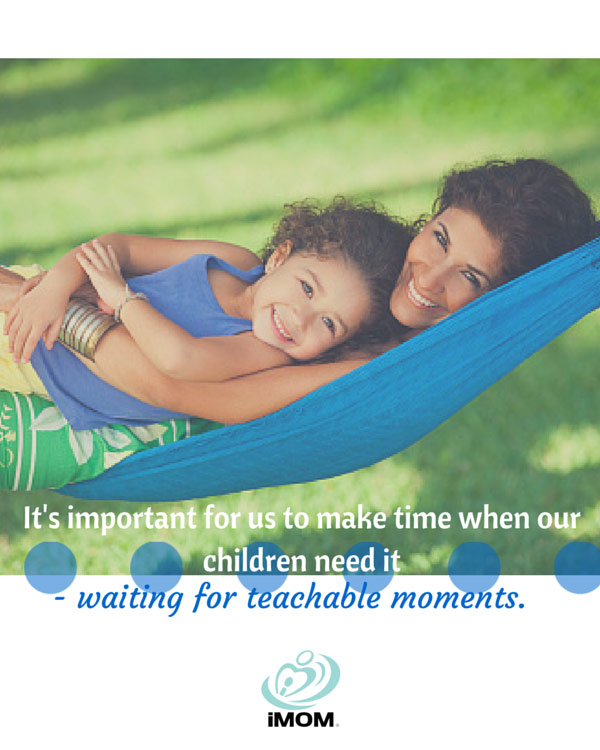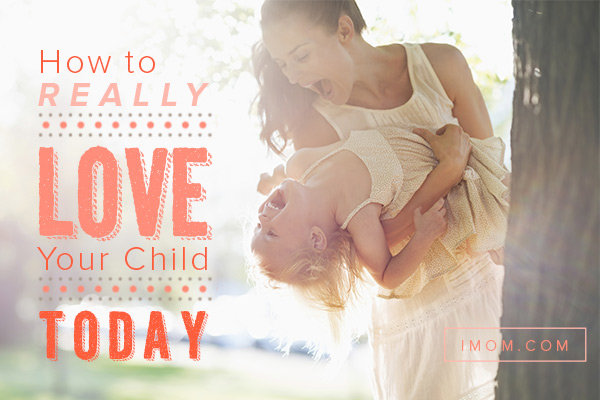I love being a mom. When my children were small, I loved the sweetness of it, even when I was so tired I thought I would never feel rested in my life again! I loved being a mom when my kids were school age. We would talk and laugh and spend time together doing things they enjoyed, and I learned to enjoy. And, now that my children are grown, I still love being a mom because my children and I have a relationship built on the foundation we laid over all of those years.
I will share a confession with you, though: There were times when I thought I would not have a lasting relationship, an eventual parent/child kind of friendship with my kids. At different times in their lives, especially the teenage years, I would feel them pulling away, and I would worry that I would never get them back. But they did come back.
Perhaps you want a deeper relationship with your child. Or, maybe you feel that your friendship isn’t what it used to be. Regardless of the situation, we want to encourage you to begin doing six important things which can help build closer friendships with your children. My friend and someone I greatly admire Gary Smalley taught me so much about how to build a good relationship with my children. That’s why it makes me smile to see the great advice that Gary and his son Greg give here: 6 Ways to Build a Lasting Relationship With Your Child.
1. Make a Lifetime Commitment.
Developing closer friendships with your children begins with making an unconditional commitment to them for life. Such a commitment says, “No matter what happens, I will never stop loving or supporting you.” As I (Greg) was growing up, my dad gave us a daily reminder of his love and commitment. At the entryway of our home hung a wall plaque which read: “To Norma, Kari, Gregory and Michael, in assurance of my lifetime commitment to you.” This plaque gave me the security to be close to my father because I knew that no matter what trouble I got into or what positive things I accomplished, he was committed to me for life.
2. Become a Student of Your Children.
In Proverbs 22:6 we read, “Train up a child in the way he should go, even when he is old he will not depart from
it.” When developing a friendship with our children, it’s important to understand what this verse is saying. Instead of trying to “pigeonhole” our children into something we think they ought to become, we need to carefully observe them and assess their strengths and weaknesses.
3. Schedule Time Together.
When asked about the privileges of growing up in a wealthy home, a young successful attorney said that the greatest gift he ever received was from his father. One Christmas morning, amongst the piles of neatly wrapped presents, was a small box. Inside was a note saying, “Son, this year I will give you 365 hours, an hour every day after dinner.”
Remember that friendships don’t develop by chance or accident. Instead, meaningful friendships are a result of spending time together on a regular — preferably daily — basis. However, because everyone may enjoy different activities, we encourage you to solicit as many suggestions as you can from family members for what would be their most enjoyable activities. List each activity on small pieces of paper and stuff them into an empty fish bowl. Each week (or several times during the week), pick a different activity to do as a family. This way everyone should eventually get to do his favorite activity.
4. Become Available to Your Children.

At times, we can drop what we’re doing because our children are simply more important. It’s helpful to remember that most children don’t expect their parents to give up all of their activities just so that they are always available. But children need to see that these activities are not as valuable as they are to their parents.
5. Listen in an Understanding Way.
Another important aspect of developing a friendship with your children is by listening in an understanding way. In other words, we encourage you to become an active listener when communicating with your child. Active listening involves eye contact with the speaker. That means when our children are talking, we need to stop our activities and giving our undivided attention.
A good listener never assumes he knows what his child is saying. Instead, ask questions to clarify what the child has said. Then repeat, using different words, what you think he meant. For example, you might ask, “Is this what you are trying to tell me?” If he says, “Well, Dad, that’s close, but that’s not quite it,” then say, “Well, we have plenty of time. What do you mean by that?” As this repeating process continues, you will be communicating that your child’s words and feelings are extremely important. What a great way to deepen your friendship!
6. Meaningful Touch.
The final way that we’ve found to help build meaningful friendships with children is by touching. When you touch your child in a gentle way–soft, tender, full of warmth–millions of nerve endings send messages to the brain where chemicals are released to bring health to your child. We encourage you to make a decision to touch your children at least eight to twelve times a day in meaningful, age-appropriate ways (e.g., holding their hand on occasion, putting your arm around them and giving a bear hug).
Why Developing Friendships with Your Children Is So Important:
As you spend time with your children, not only do you create precious memories, but another very important thing happens: You become bonded. Have you ever noticed how quickly things can go wrong when you’re together as a family? The bottom line is that difficult times don’t have to pull a family apart. Instead, it can be the very glue that bonds the family into tight friendships.
Let’s Talk: Do you feel like you’re building a good relationship with your children?









